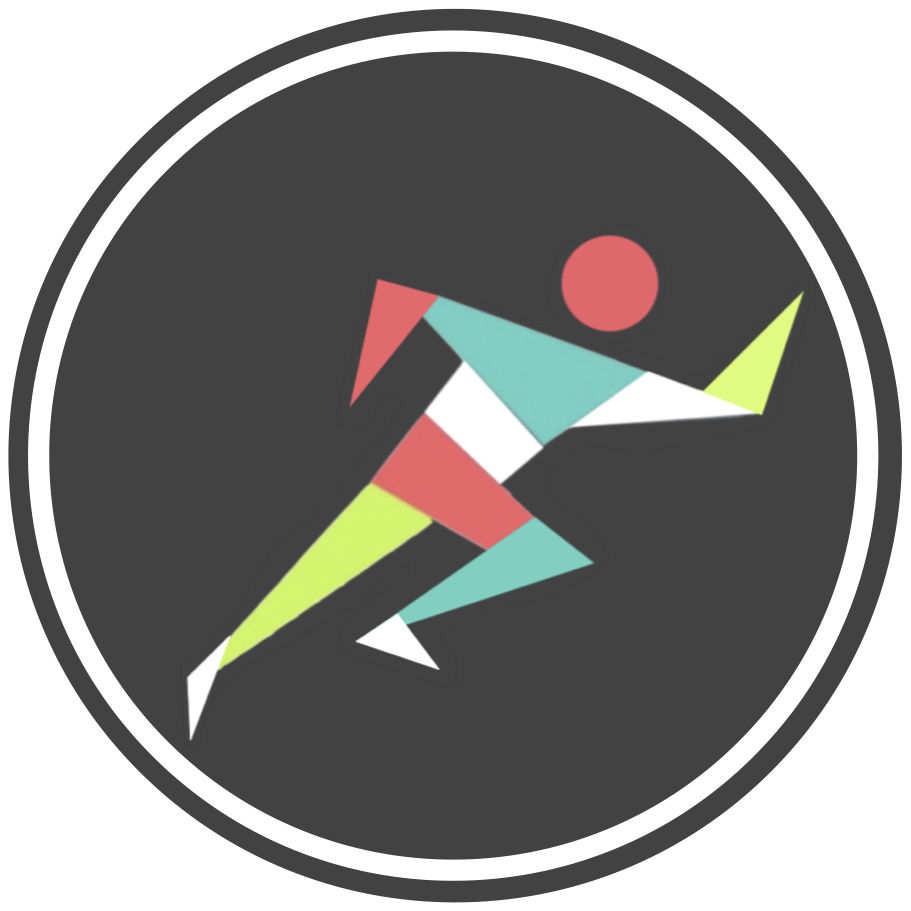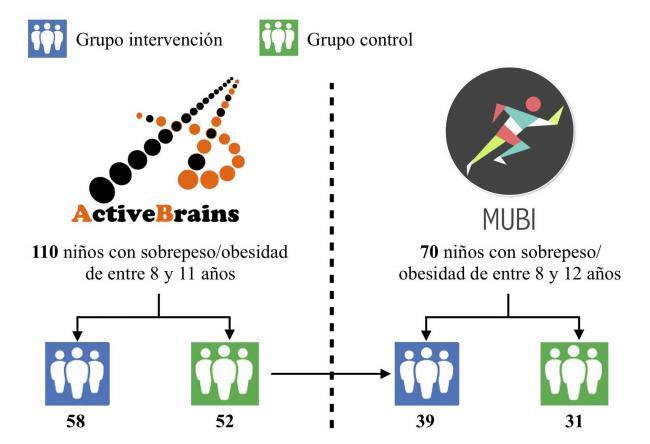
There is evidence indicating that the presence of overweight/obesity induces alterations in movement biomechanics, body posture and movement competence of children and adolescents, with severe health consequences for their musculoskeletal system. Physical exercise could be a promising treatment to reverse all these alterations in children with overweight/obesity, and therefore prevent the onset of associated musculoskeletal disorders, however, there is still a lack of studies supporting it.
The MUBI study (MUévete BIen) aims to investigate the effect of a 13-week exercise program on movement biomechanics, body posture and motor competence of 70 children between 8 and 12 years old identified as having overweight/obesity. This study has been accepted by the Ethics Committee in Human Research of the University of Granada (nº 279 / CEIH / 2017). The MUBI project arises as a continuation of the ActiveBrains project. MUBI projects has two assessment time, previous (pre-intervention) and posterior (post-intervention) to the exercise program.

Participants are divided into an intervention group, who carry out the 13-week exercise program, and a control group, who continue with their normal life. The aim of this distribution is to study the effects of the exercise program by comparing both groups. For logistical reasons, the exercise programs of both projects, ActiveBrains and MUBI, are carried out in 4 different waves, and the control group of the third wave of ActiveBrains becomes the intervention group of MUBI.

For ethical reasons, the children bellowing the control group also carry out the same exercise program the following year.
All biomechanics outcomes are assessed in collaboration with the HumanLab biomechanics laboratory, belonging to the Instituto Mixto Universitario de Deporte y Salud (iMUDS). Gaits biomechanics (kinematics, using 3-dimensional photogrammetry, and plantar pressure), static body posture posture (2-dimensional photogrammetry and pressure plantar), movement competence (Functional Movement ScreenTM), musculoskeletal pain (pediatric pain questionnaire) and physical fitness (cardiorespiratory capacity, muscular strength and speed-agility) are the main variables studied. For the analysis of biomechanical outcomes, this study has the support of the “Musculoskeletal Rehabilitation Research Group” belonging to the Catholic University of Louvain (KU Leuven), Belgium (https://gbiomed.kuleuven.be/english/research/50000743/mskrg/msk.htm).
Exercise intervention and data collection finished.
The present study is part of the ActiveBrains project, which was funded by the Spanish Ministry of Economy and Competitiveness and the “Fondo Europeo de Desarrollo Regional (FEDER)” with the following reference number: DEP-2013-47540.
Description and rationale of the exercise program carried out in the MUBI study: